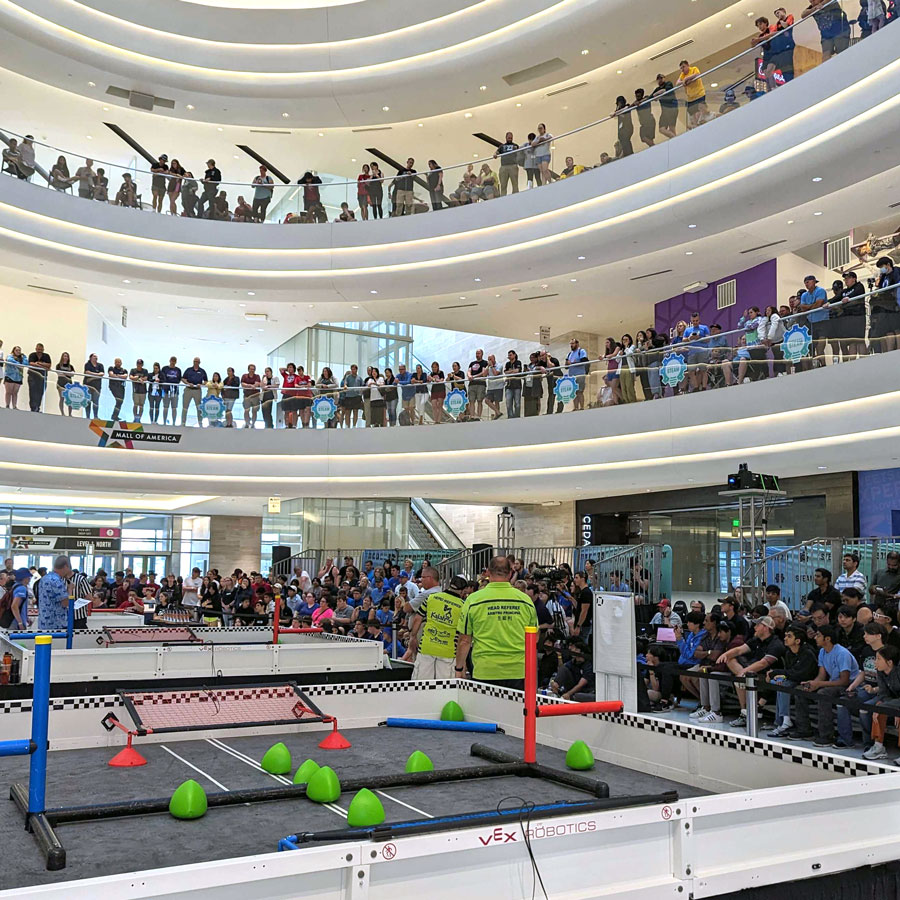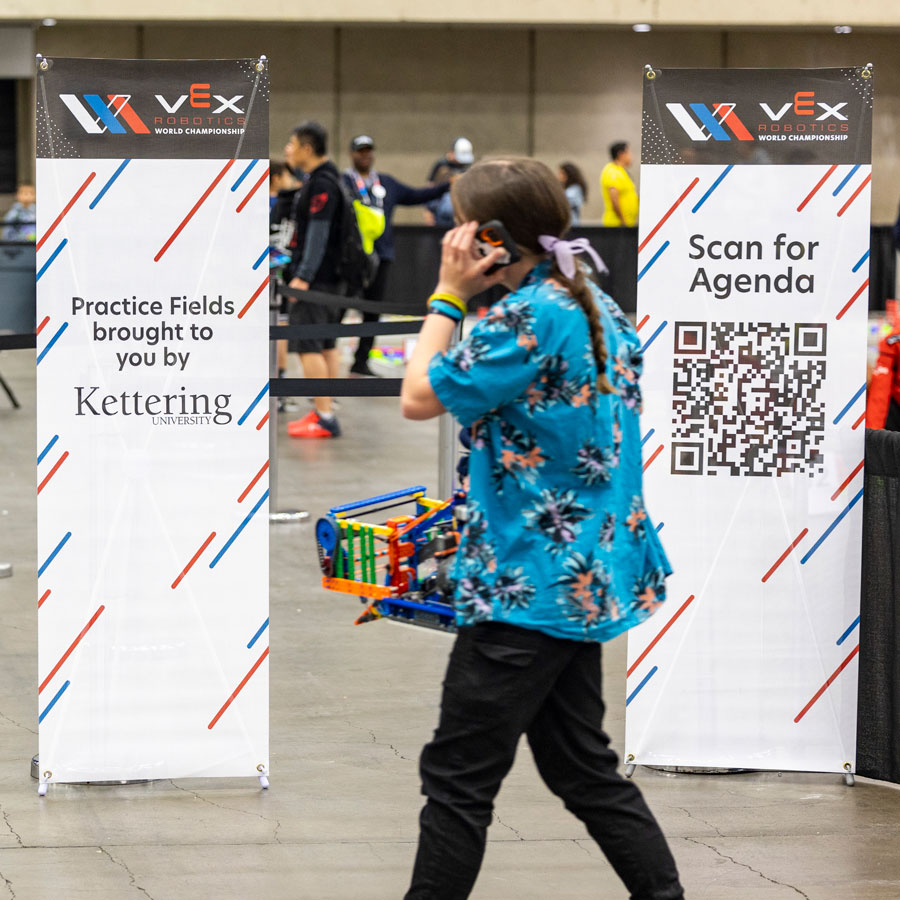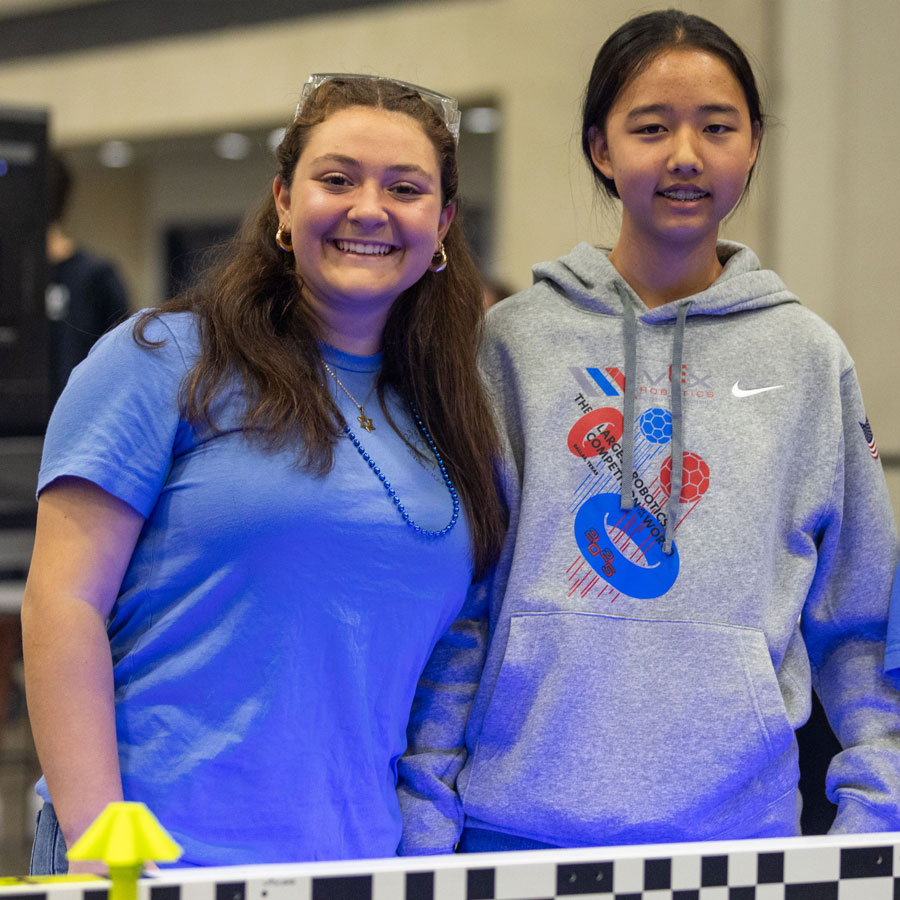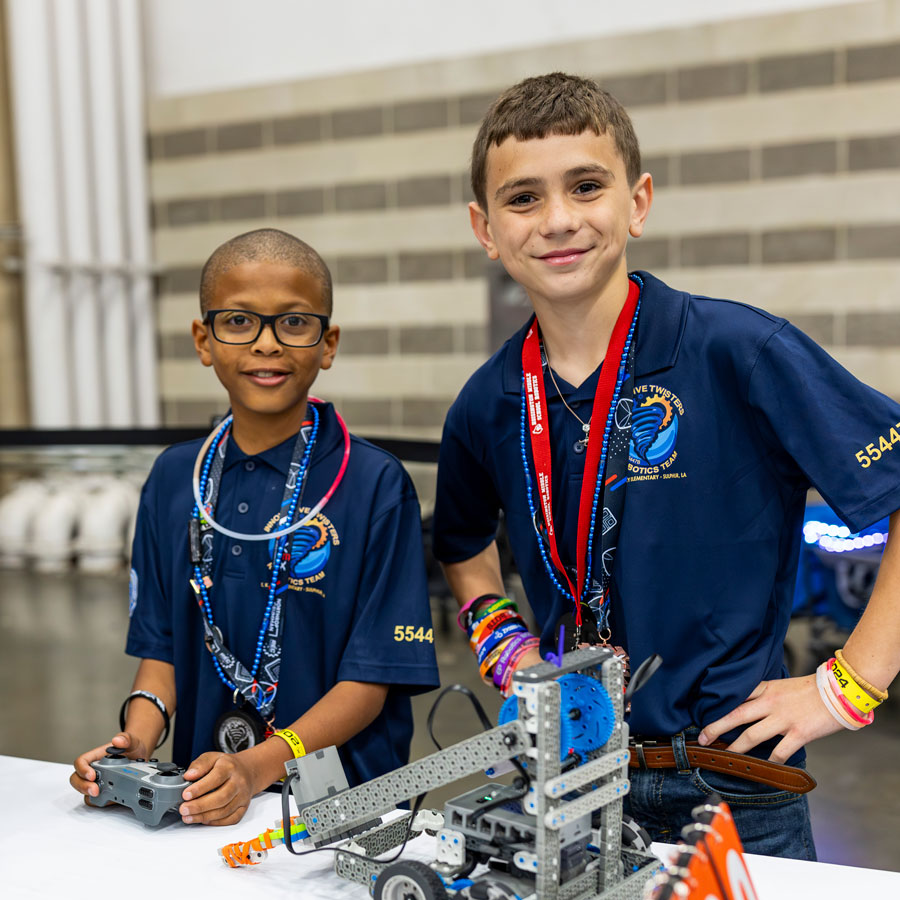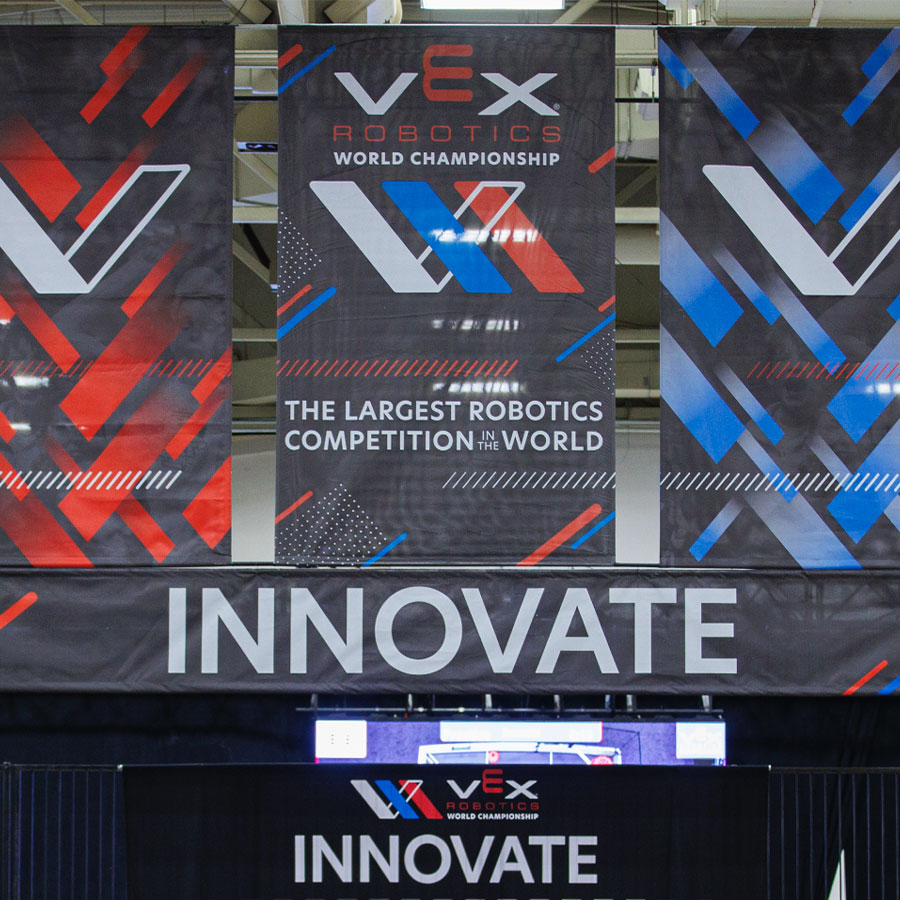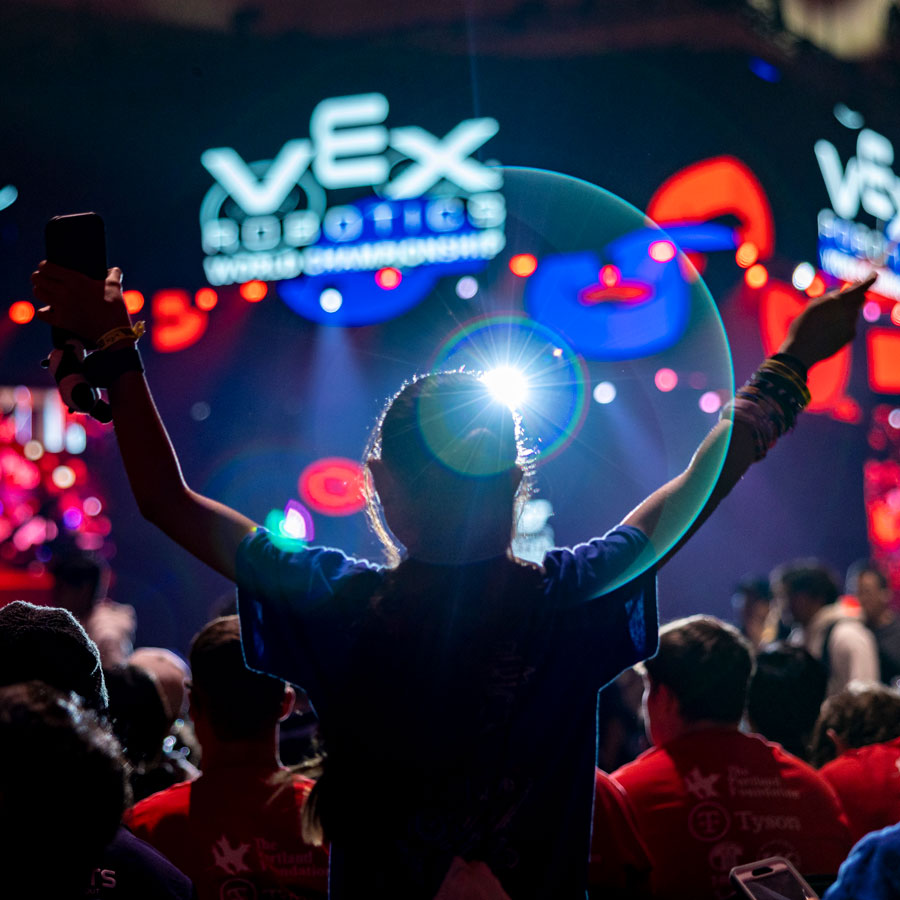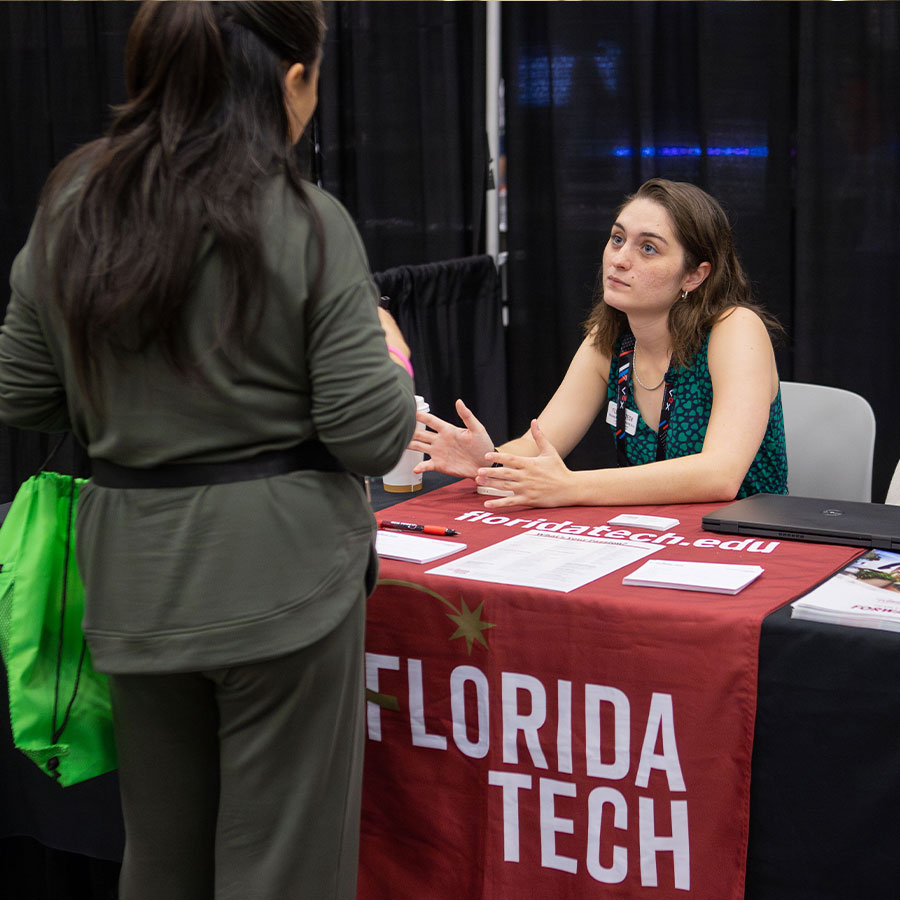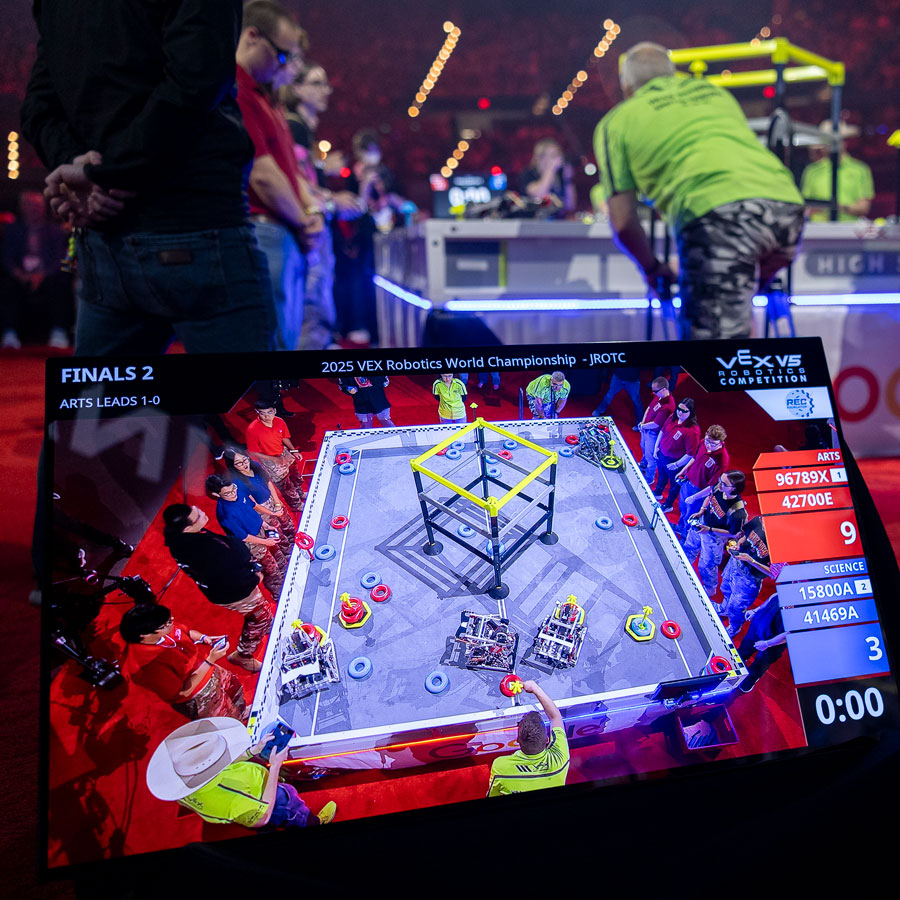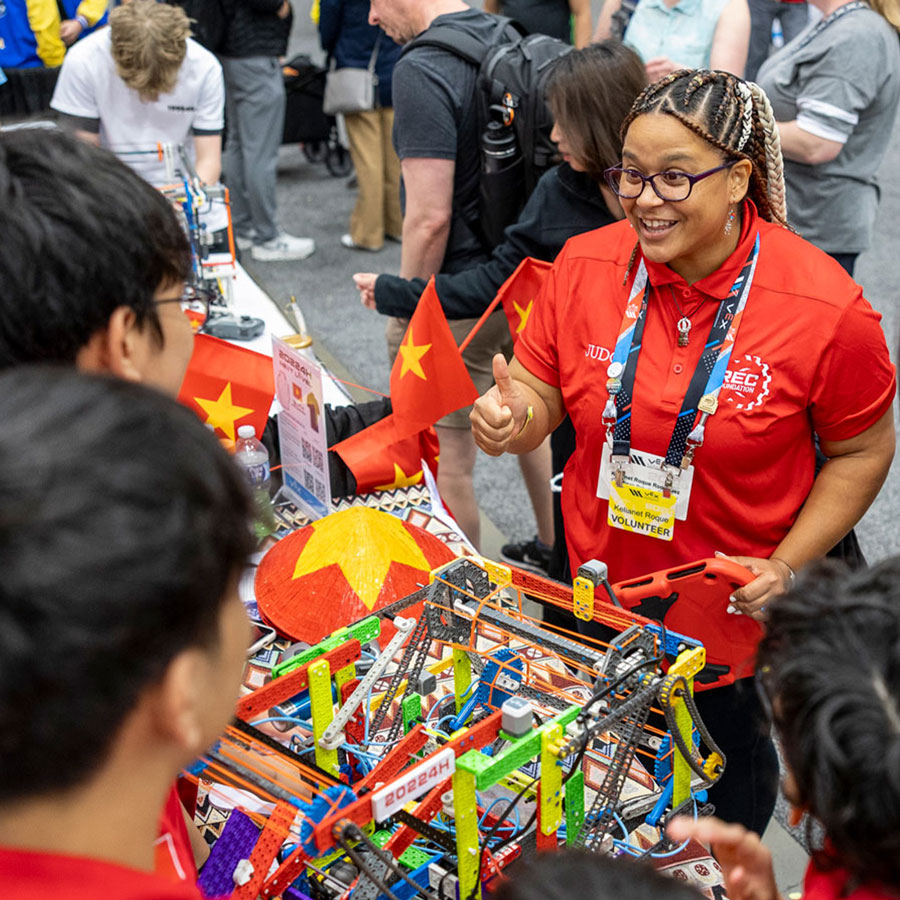
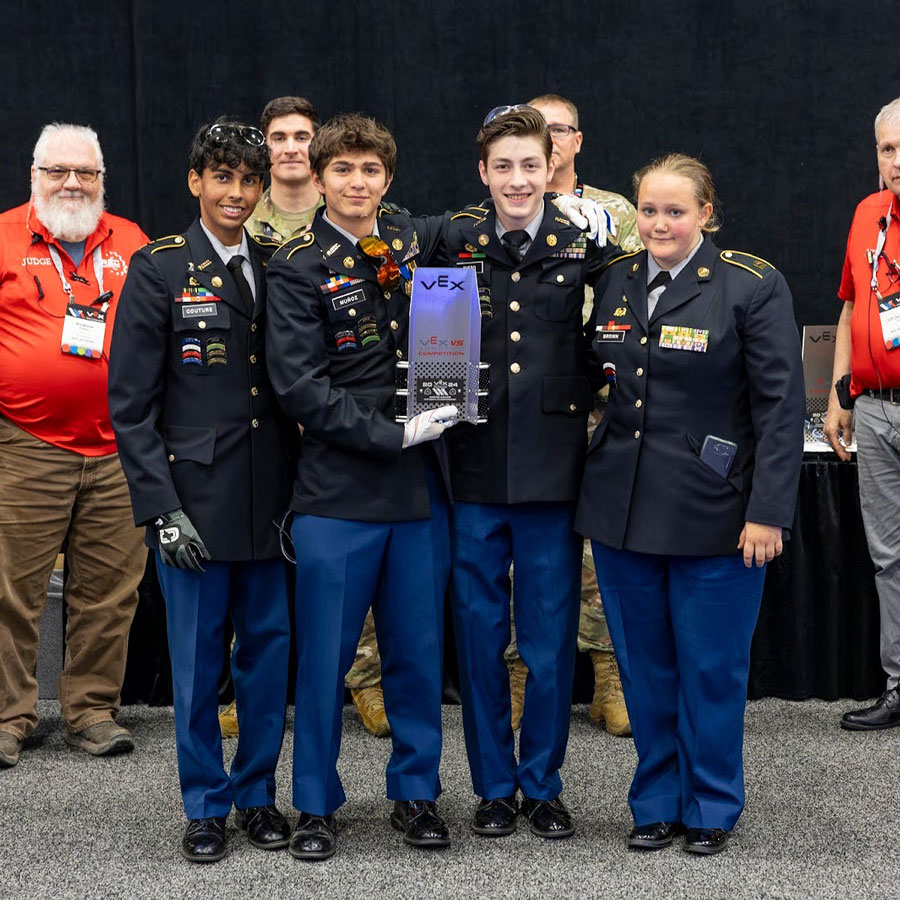
The Robotics Education & Competition Foundation proudly offers the VEX V5 Robotics Competition (V5RC) to the Air Force, Army, Navy, Marine, Space Force, and Coast Guard JROTC programs. Cadets and students apply the leadership skills that they are developing in their JROTC programs to design, build, modify, and program robots in JROTC invitational events and blended V5RC competitions. Cadet-lead teams compete throughout the VEX V5 Robotics Competition season to attend the JROTC National Championship.
We recently interviewed some of the team members and the coach of the Army JROTC VEX V5 Robotics Competition team 11981A, Apollo, from Steinbrenner High School in Tampa, Florida, to learn more about what makes the JROTC Robotics Program special.
Jason, the team’s leading strategist, shared stories about how he and his team members Jorge and Erik were on a competitive team together in the first year. They struggled in their first few competitions, building only a basic pushbot, coding with blocks, and struggling to build relationships in competitions that would make them ideal partners picked for an alliance. “That year, we had one of the worst bots in the season. In every event we went to, we probably placed last. If we weren’t last, then we were second to last. One of the things JROTC has helped me with is learning how to deal with failure and how to take it as a positive effect because you can learn so much from failure, more than from a win.”
Through their perseverance, hard work, and dedication to learning, they grew significantly as a team that year, ending the season being crowned as the unsuspecting National Champions as only sophomores, competing against and ultimately beating out a more senior team from their school. The team continued to share how their dynamic has grown since then. “Everyone has a different strength, so they take control whenever their topic comes around. I am the captain by title, but I am not the best at everything,” said Jorge.
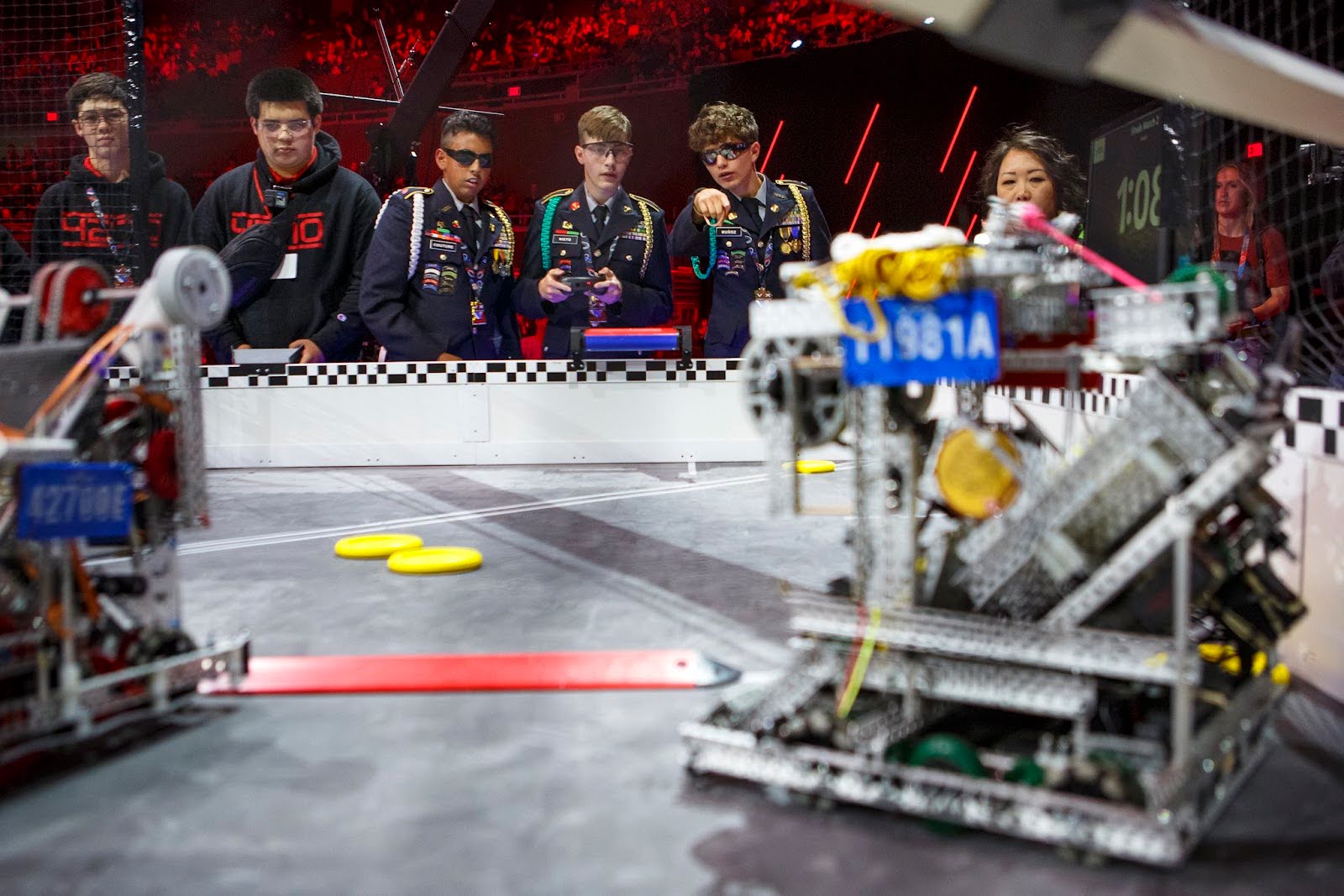
Each team member on team 11981A has a distinct role, from building to programming, strategy, documentation, team logistics, and more. They mentioned that by taking responsibility for the effort they individually put into completing each of their roles on the team, they have developed significant leadership skills that will take them far beyond the competition while also building a strong team dynamic.
Their coach shared more about the keys to the success of the team and their program, “We teach them basic leadership skills and how to problem solve. I put a person in charge as team captain, and it is their job to make sure each person knows their role, and each member is doing their job correctly so the team is successful.”
He also shared that for some other JROTC activities, teams can practice 1-3 hours a week and find success. However, with robotics, he’s found that his successful teams practice and commit about 10-12 hours a week on average. Sergeant Notto said that the community within JROTC robotics and the VEX V5 Robotics Competition is a huge factor in starting and building a successful program. “Some of these teams get on their forums, and they’ll talk to each other about problem-solving and strategies. I attribute that communication to being why my teams have been successful. It’s the cooperation from traditional high school teams being able to give advice, and then we pass that on to the JROTC teams to help them.”
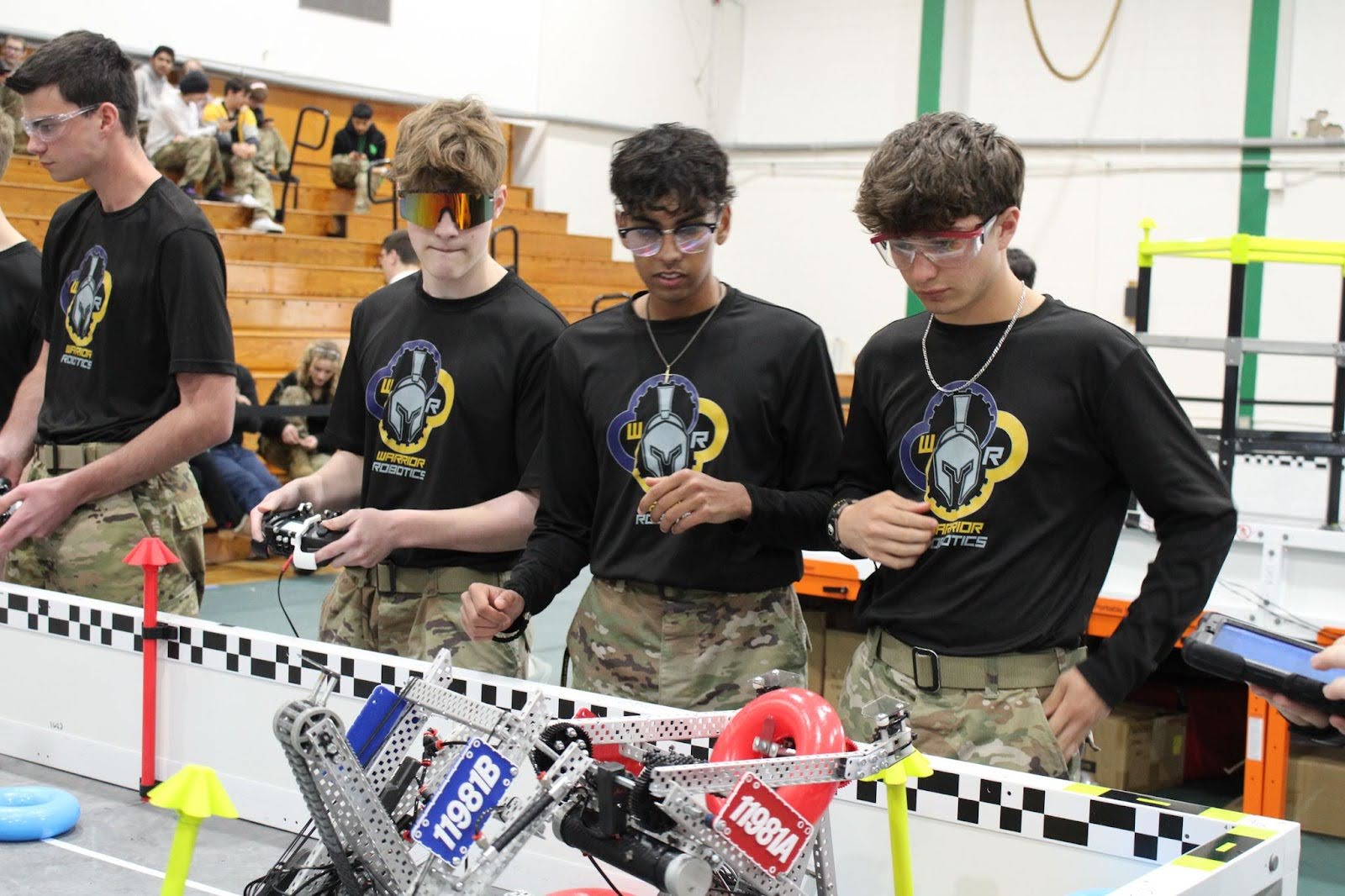
Steinbrenner High School currently has all four of their JROTC VEX V5 Robotics Competition teams qualified for the National Championship in May and are looking to reclaim their title of National Champions, but the team members of 11981A are finding success off of the robotics field as well.
Senior Programmer, Erik will study Aerospace Engineering at the University of Central Florida in the Burnett Honors College. At the same time, Jason plans on studying Intelligence and Security Systems at the Citadel, having received the Naval Reserve Officers Training Corps (NROTC) Marine Option Scholarship. Jorge, who also received an NROTC Scholarship, plans to study Mechanical Engineering with a minor in Spanish and wants to continue participating in VEX Robotics Competition by joining his university’s VEX U Robotics Competition team. Another team member, Sierra, plans to study Nuclear Engineering, focusing on the research and development sector of nuclear engineering to create cleaner and more sustainable energy.
Sergeant Notto admitted that he was slightly unnerved when he first started his program seven years ago but that he is glad he did it. He hopes that JROTC will always have the program and that every school eventually adopts it for its cadets.
